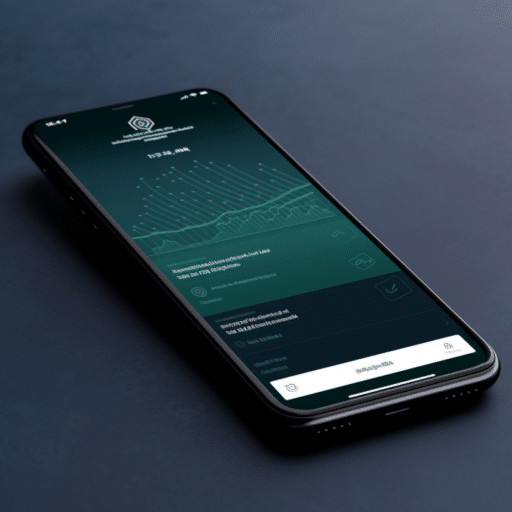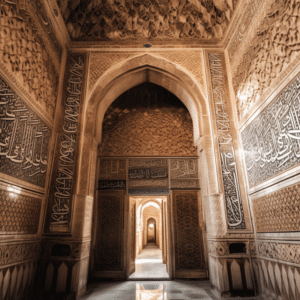Wakala in Islamic finance refers to an agency agreement where the principal, or Muwakkil, appoints an agent, or Wakil, to act on their behalf.
In the case of an Islamic Wakala Deposit, the bank often serves as the Wakil, managing the funds for the depositor, or Muwakkil, to generate a profit.
Wakala translates to “agency” in Arabic. In an Islamic Wakala Deposit, you, as the depositor, entrust your funds to the bank.
The bank then invests these funds in Shariah-compliant ventures, aiming to earn a profit. This arrangement allows for the efficient recycling of short-term liquidity, a feature that has gained attention in the Islamic banking system.
Islamic Wakala Deposit offers a unique proposition compared to other Islamic finance contracts. Unlike Mudarabah, where both parties share the profit and loss, in an Islamic Wakala Deposit, the bank commits to a specific return rate.
This commitment provides a sense of security to the depositor, making Islamic Wakala Deposit a preferred choice for many.
If you want to invest as an expat or high-net-worth individual, you can email me (advice@adamfayed.com) or use these contact options.
The Importance of Wakala in Modern Banking
Islamic Wakala Deposit has gained significant traction in modern banking systems. It offers a transparent, ethical, and Shariah-compliant investment avenue.
With the growing demand for interest-free banking, Islamic Wakala Deposit has seen a rise in its prominence.
One of the key advantages of Islamic Wakala Deposit is its ethical and transparent nature. The bank specifies the expected return from the customer’s deposit by investing in selected Shariah-compliant instruments for an agreed fee.
This transparency fosters trust between the bank and the depositor.
Despite its advantages, Islamic Wakala Deposit has faced criticism for potential conflicts of interest, known as agency problems.
These arise when the objectives of the Wakil (the bank) do not align with those of the Muwakkil (the depositor).
However, most banks have mechanisms to mitigate these risks, ensuring that the Islamic Wakala Deposit remains a reliable investment option.
Key Features of Islamic Wakala Deposit
Structure and Components
The robustness of the Islamic Wakala Deposit lies in its meticulously crafted structure.
This structure not only upholds the highest standards of transparency but also ensures that every transaction and investment aligns perfectly with Islamic principles.

Wakil (Agent) and Muwakkil (Principal)
The essence of the Islamic Wakala Deposit revolves around the dynamic between the Wakil and the Muwakkil.
In this relationship, the bank, designated as the Wakil, shoulders the crucial task of managing and investing the funds.
This responsibility is not taken lightly, as the bank must act in the best interest of the depositor or the Muwakkil.
The mutual understanding between the two parties is that the bank will employ its expertise to generate a predetermined and agreed-upon profit.
This arrangement ensures that Muwakkil’s funds are in capable hands and the expected returns are clear from the outset.
Agreed Profit Rate
While many financial instruments have fluctuating returns, the Islamic Wakala Deposit sets itself apart with its agreed profit rate.
Traditional banking systems often have interest rates that can change based on various factors, leading to unpredictability for the depositor.
However, with the Islamic Wakala Deposit, the bank makes a firm commitment regarding the profit rate. This commitment is not just a mere promise; it’s a binding agreement that provides the depositor with a clear picture of the expected returns.
Furthermore, this agreed profit rate is not just a random figure. Banks determine it after thorough market research, analysis of investment avenues, and understanding the risk-reward ratio.
By doing so, they ensure that the rate offered is competitive and in line with the depositor’s expectations.
Duration and Maturity
The tenure of an Islamic Wakala Deposit is predefined, offering flexibility based on the depositor’s financial goals.
This predetermined duration ensures that both the depositor and the bank have clarity on the investment period, allowing for better financial planning and strategy formulation.
Short-term vs. Long-term Wakala Deposits
Islamic Wakala Deposits cater to various financial needs. For depositors who are looking for swift returns, short-term deposits are ideal.
These deposits are typically suitable for those who might need their funds soon and are unwilling to lock them away for extended periods.
On the flip side, long-term deposits are more suitable for depositors aiming for substantial growth over time.
These deposits are often associated with larger projects or investments that banks undertake, which might yield higher returns over a more extended period.
Renewal and Termination Provisions
Banks prioritize customer convenience regarding Islamic Wakala Deposit. Upon reaching maturity, depositors have the option to renew their deposits.
This renewal can be based on the prevailing profit rates and terms at the time of renewal.
It allows depositors to continue benefiting from the investment without the hassle of starting a new contract.
However, life is unpredictable, and financial needs can change. Recognizing this, banks typically offer provisions for early termination of the Islamic Wakala Deposit.
If circumstances change and depositors need their funds before the maturity date, they can usually access them.
However, it’s essential to note that early termination might come with certain conditions or might affect the expected profit rate.

It’s always recommended to read the terms and conditions and understand any implications of early withdrawal.
Application and Mechanism of Wakala in Banks
Wakala, in its essence, is an agency contract. In the context of Islamic Wakala Deposit, the bank acts as an agent (Wakil) to carry out investment activities on behalf of the account holder (Muwakkil).
The actual profit is distributed according to the profit ratio agreed upfront.
As the Wakil, the bank specifies the expected return from the customer’s deposit by investing in selected Shariah-approved instruments for an agreed fee.
The Wakil then invests to generate a return, acting on behalf of the customers (Muwakkil).
The Muwakkil sets the expected returns from the investment, and the Wakil must find an investment that meets these expectations after deducting the Wakil fees.
Profits that exceed the agreed returns become an additional incentive for Wakil. However, like all investments, if there’s a default, the Muwakkil bears all risks and losses unless they result from the Wakil’s misconduct or negligence.
Application and Mechanism of Islamic Wakala Deposit
The Islamic Wakala Deposit operates on a clear and transparent mechanism that ensures both the bank and the depositor understand their roles and responsibilities.
When depositors invest in an Islamic Wakala Deposit, they agree with the bank. This agreement outlines the profit ratio, which both parties have mutually agreed upon.
The bank, acting as the Wakil, then takes on the responsibility of investing the depositor’s funds. The aim is to achieve the expected returns specified by the depositor, known as the Muwakkil.
The Wakil invests the funds in a selected financial instrument to achieve these returns. They do this for a predetermined fee, ensuring the investment aligns with Shariah principles. The investment aims to generate returns that match or exceed Muwakkil’s expectations.
If the investment yields profits beyond the agreed returns, the Wakil receives these additional profits as an incentive. This incentive system motivates the Wakil to seek out the best possible investment opportunities for the Muwakkil.
However, investments inherently come with risks. If the investment faces a loss, the Muwakkil bears the brunt of it. The only exception is if the loss results from Wakil’s intentional misconduct or negligence.
Shariah Issues on Wakala Deposit Structure
The Islamic Wakala Deposit, while adhering to the guidelines set by Islamic scholars, does face some criticisms and challenges.
A significant concern is the potential for a conflict of interest. Since the Wakil stands to gain additional profits if the investment performs exceptionally well, they might be tempted to take undue risks or act in ways that don’t align with the Muwakkil’s best interests.
This objective divergence between the owner (Muwakkil) and their agent (Wakil) is known as the agency problem.
Another point of contention is the need for a physical commodity in the Wakala contract.
Traditional Islamic financial transactions often involve tangible assets, ensuring the transaction has a real-world basis and isn’t merely speculative.
The lack of a physical commodity in the Wakala contract leads to debates about its risk efficiency and control. This absence might make the contract more susceptible to market volatility and uncertainties.

Benefits of Choosing Wakala Deposit
When considering investment options, the Islamic Wakala Deposit is a top choice for many. But why? Let’s delve deeper into the advantages it offers.
Shariah-Compliant Investment
One of the standout features of the Islamic Wakala Deposit is its adherence to Shariah principles, making it a preferred choice for those seeking ethical investment avenues.
Avoidance of Riba (Interest)
Islamic Wakala Deposit operates without involving Riba, a significant advantage for those prioritizing Shariah-compliant financial dealings.
By choosing an Islamic Wakala Deposit, you ensure that your money grows in a manner that respects Islamic teachings.
Ethical Investment Opportunities
When you invest in an Islamic Wakala Deposit, you’re not just growing your wealth.
You’re also ensuring that your funds support ethical and Shariah-approved ventures. This commitment means that your money won’t inadvertently fund industries or practices that go against Islamic principles.
Flexibility and Customization
Every investor has unique needs, and the Islamic Wakala Deposit recognizes this.
Tailored Profit Rates
One of the most attractive features of the Islamic Wakala Deposit is its tailored profit rates. Banks often adjust these rates based on the depositor’s requirements and the prevailing market conditions.
For instance, some banks offer expected profit rates of up to 4.50% p.a., providing competitive returns for depositors.
Multiple Investment Avenues
Diversification is a key principle in investment, and the Islamic Wakala Deposit embodies this. When you invest in an Islamic Wakala Deposit, banks channel your funds into various Shariah-compliant sectors.
This strategy maximizes the profit potential and spreads risk, ensuring a more stable return on investment.

Reliability and High Profitability
Many investors are drawn to the Islamic Wakala Deposit because of its reputation for reliability. High investment-grade credit ratings of certain groups confirm the trustworthiness of this investment option.
Coupled with its potential for high profitability, the Islamic Wakala Deposit becomes an attractive proposition for both seasoned and novice investors.
Wide Range of Banking Products
Banks offering Islamic Wakala Deposits often have a broad spectrum of Islamic banking products. This range allows depositors to diversify their portfolios further and access various financial instruments that align with their investment goals.
Flexible Tenures
Another advantage of the Islamic Wakala Deposit is its flexibility in its tenures. Whether you’re looking for short-term growth over a few months or long-term investment spanning several years, an Islamic Wakala Deposit will likely fit your needs.
Potential Risks and Challenges
Islamic Wakala Deposits, like all investments, inherently come with risks. While the structure of the Islamic Wakala Deposit is designed to be Shariah-compliant and ethical, it’s essential to understand the potential challenges and risks associated with it.
Market Volatility and Return on Investment
Market conditions largely influence the success of an Islamic Wakala Deposit. As with any investment, the returns are not guaranteed and can be affected by various external factors.
Factors Influencing Returns
A myriad of factors can influence the returns on your Islamic Wakala Deposit. Global economic conditions play a significant role.
For instance, economic downturns, geopolitical tensions, or global financial crises can impact the profitability of the sectors where the bank invests its funds.
Additionally, specific industry performances, such as the real estate, energy, or technology sectors, can also affect the returns on your Islamic Wakala Deposit.
Risk Mitigation Strategies
Banks adopt several strategies to safeguard the returns of your Islamic Wakala Deposit. One primary approach is the diversification of investments.
Banks aim to minimize the risk associated with any single investment by spreading the funds across various Shariah-compliant sectors.
Additionally, banks maintain a vigilant eye on market conditions, adjusting their investment strategies to ensure the best possible returns for their customers.
Understanding the Wakala Agreement
Every Islamic Wakala Deposit operates under a specific agreement, which outlines the terms and conditions of the investment.
Key Clauses to Watch Out For
When entering an Islamic Wakala Deposit agreement, it’s crucial to understand all its clauses. This protects your investment and sets clear expectations between you and the bank.
For instance, the agreement will specify the expected returns from the investment, the wakil fees, and the terms in case of default. It’s worth noting that in the event of default, the depositor (Muwakkil) bears all risks and losses except those resulting from the bank’s (Wakil’s) misconduct or negligence.
Dispute Resolution Mechanisms
Disagreements can arise in any financial transaction. However, most banks have mechanisms to resolve disputes related to Islamic Wakala Deposits amicably.
It’s essential to familiarize yourself with these mechanisms when agreeing. This ensures that issues can be addressed efficiently and fairly if any issues arise.
Is Islamic Wakala Deposit Right for You?
Making a financial decision, especially related to investments, requires careful consideration. Islamic Wakala Deposit, with its unique features and benefits, has emerged as a popular choice for many.
But is it the right fit for you?
One of the compelling reasons many investors lean towards Islamic Wakala Deposit is the attractive expected profit rates. Some institutions offer rates up to 4.15% per annum, depending on the tenure of the deposit.
For instance, ADCB Islamic Banking has introduced a Regular Wakala Deposit with promising rates for 24 months.
It also caters to a wide range of investors. Whether you’re looking to invest in AED or USD, options are available. Some banks, like Emirates NBD, even offer Wakala Deposits for high-net-worth individuals with a minimum deposit requirement of AED 4 million or USD 1 million.

Every Islamic Wakala Deposit operates under a specific agreement, which outlines the terms and conditions of the investment.
While the benefits of Islamic Wakala Deposit are evident, it’s essential to understand the terms and conditions associated with early withdrawals, especially if you anticipate needing access to your funds before the deposit matures.
Finally, before diving into any investment, including an Islamic Wakala Deposit, always consult with financial experts. They can provide insights tailored to your financial situation, ensuring you make informed decisions.
Pained by financial indecision?

Adam is an internationally recognised author on financial matters with over 830million answer views on Quora, a widely sold book on Amazon, and a contributor on Forbes.



